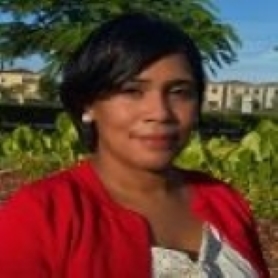Lydia Ocasio-Stoutenburg, PhD
Mailman Center for Child Development
![]()

As a parent advocate, Lydia Ocasio-Stoutenburg references the birth of her youngest son as her entry point into the world of supports for persons with disabilities, witnessing the need to promote more equitable opportunities and supports. She came to the Mailman Center for Child Development (MCCD) LEND/UCEDD in Miami FL in 2015 as a family trainee in Cohort IV of the Emerging Transformational Leadership Program (ETLP). She is also an alumnus of Partners in Policymaking through the Developmental Disability Council in the state of Florida. One of the highlights of these programs for her, was to learn in partnerships alongside other professionals, parents and self-advocates. While studying at the University of Miami, she kept a keen focus on advocacy outside of the academy, supporting the efforts of parents, caregivers and other representatives within her local school district. She has also served as a member and board representative of community disability organizations. Lydia is an educator, qualitative researcher and ethnographer, whose teaching and publications have focused on disability advocacy, the empowerment of individuals and families at the intersection of disability with culturally and linguistically diverse and historically marginalized identities, strengths-based perspectives around transition, access to early childhood assistive technology supports and family counternarratives.
Lydia returned to MCCD in 2020 as a contributor to community engagement, research and curriculum development across the LEND, Step UP AT assistive technology and self-advocate leadership training (SALT) initiatives. She is the lead of the advocacy sessions for trainees in Understanding Family Professional Partnerships and is fostering local and statewide connections among leaders in the disability network. Lydia's work has centered disability equity, addressing disparities in healthcare, education, service delivery, access to supports, community participation and other life domains. She remains responsive to the unceasing need to advocate for systems to appropriately support persons with disabilities and their families. Finally, highlighting the need for representation of culture, language, cross-disability perspectives and lived experience within leadership, she strives to promote authentic collaborations, so that individuals with disabilities and families are a part of the research, planning, policy and programs that serve them. Lydia is the current chair of the Multicultural Council of the Association of University Centers on Disabilities and serves on the Board of Directors.







